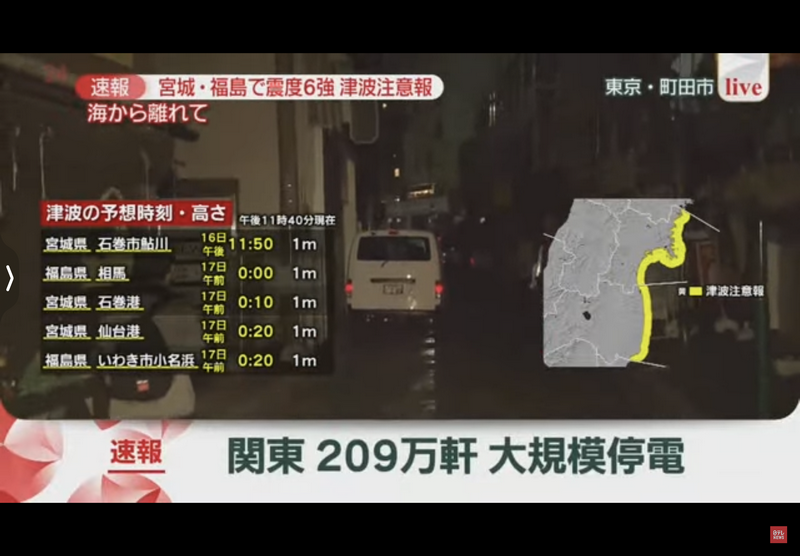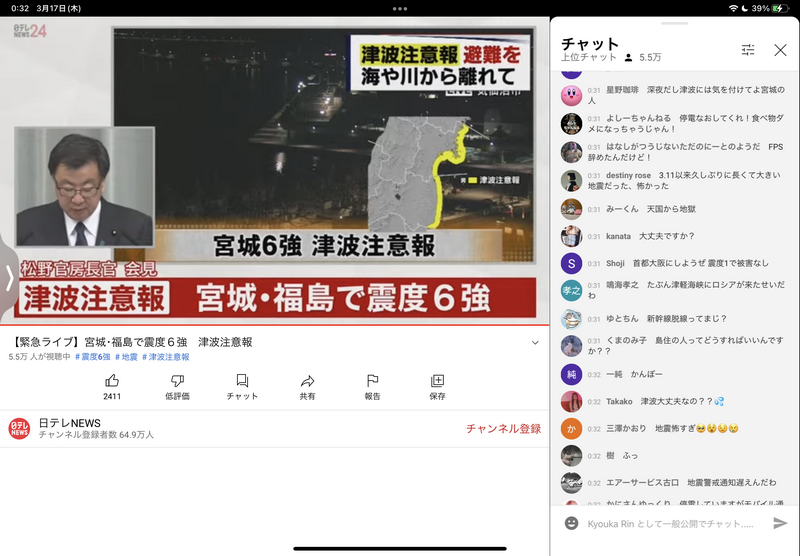The earthquake country where a long illness has become a good doctor
There was another earthquake last night...
Although Tokyo where I live is not the epicenter, it is probably 4,500 kilometers away from the epicenter. Shaking for too long, the semicircular canal in the ear also lost its balance, and it was even more dizzy than riding a pirate ship in an amusement park.
Coincidentally, just a few days ago, after commemorating the 311 Great East Japan Earthquake, another wave of strong earthquakes came. Although this is the inevitable fate of countries in the earthquake belt, it can also be understood from another perspective that Japan is a country that has a very fast response mechanism in the face of natural disasters.
As long as your mobile phone can receive Japan's mobile phone communication signal in Japan, the earthquake prediction system will send a signal immediately after detecting the earthquake wave, and all mobile phones will sound a "scream" together. Although the accuracy rate is not high, or only a magnitude 3 earthquake will be notified, and sometimes I will be startled by my mobile phone when I am concentrating on work. But with an additional early warning system, it can always give you more reaction time and increase your chances of survival.
The TV station is also prepared, and can always start reporting earthquake-related information within minutes after the earthquake. Therefore, it has become a habit now that whenever there is a relatively strong shaking, no matter what time zone, turn on the TV first to check where the epicenter is, how big the earthquake scale is, and then decide whether to escape the door or continue to wait. Inside the house.
I remember that at the moment of the 311 earthquake 11 years ago, I was working in the company building, it should be on the 4th floor. The shaking was not serious at first, and everyone was still in their seats and continued to work. Suddenly, they felt violent up and down slaps, and they didn't need to watch TV. Everyone started sprinting downstairs. There was a sound of stomping on the stairs of the building, and people in the whole building were fleeing down. When I arrived at the gate on the first floor, I found that it was full of people. I was wondering why everyone didn't go out! ? I heard that it is more dangerous to stay on the sidewalk, and I don't know if the sign outside the building or the exterior wall will fall down. Because the company is located in the office area, it is surrounded by large and small office buildings. Later, it seemed to be relatively stable, and people began to move to the nearby parks one after another. After all, staying in the lobby on the first floor is not an option. In case the floor collapses...
After checking the damage of the building, only a few obvious cracks were found in a few places. Overall, the building is quite earthquake-resistant. Although the disaster in Tokyo at that time was not too serious, some old buildings that did not meet the latest earthquake resistance standards still collapsed.
Regarding Japan's earthquake resistance benchmarks, you can refer to previous articles 👉 Solutions to Japan's medium and long-term housing problems - housing status (subtitle)
Earthquakes do the greatest harm to humans or creatures, usually not being crushed or injured by collapsed houses, but secondary disasters such as subsequent fires and tsunamis (Japanese: Tsunami). The fire is mainly caused by the rupture of the gas pipeline or the short circuit of the electric wire, so Japan's power system will automatically implement power-off measures in case of abnormal conditions, so as to reduce the occurrence of larger disasters. The large-scale power outages in Kanto and other regions last night were due to the automatic power-off system.

At present, there is no effective solution to the tsunami problem. Up to 90% of the dead and injured in the 311 earthquake were submerged and killed by sea water. Even the super-large breakwater that had been certified by the Guinness World Records in the area could not stop the tsunami. At present, we can only appeal to the people in the tsunami-affected areas to move as high as possible. Last night's TV news anchor kept calling for the tsunami warning to be issued, not to go to the seaside for your own safety, but to move to the higher ground as soon as possible.
In addition to television and other media, the official action was also very fast. As soon as the earthquake occurred, it took less than an hour for the "Chief Cabinet Secretary", the No. 2 figure in the government cabinet, to hold a briefing. That is to say, in just one hour, the major disaster and other related information has been roughly compiled and handed over to the spokesperson for a public explanation, and this briefing will still start around 0:30 in the middle of the night. By the way, Japanese news can also be watched instantly on YouTube now, and I just lie in bed and watch the latest news.

The ancients said, "Nine broken arms become a doctor." This sentence does not deceive me. Japan has experienced countless earthquake disasters from ancient times to the present, and it has its own set of efficient disposal methods under the long-term illness.
2022/03/17 posted.
Original link to Japan behind-the-scenes observation
Like my work? Don't forget to support and clap, let me know that you are with me on the road of creation. Keep this enthusiasm together!

- Author
- More